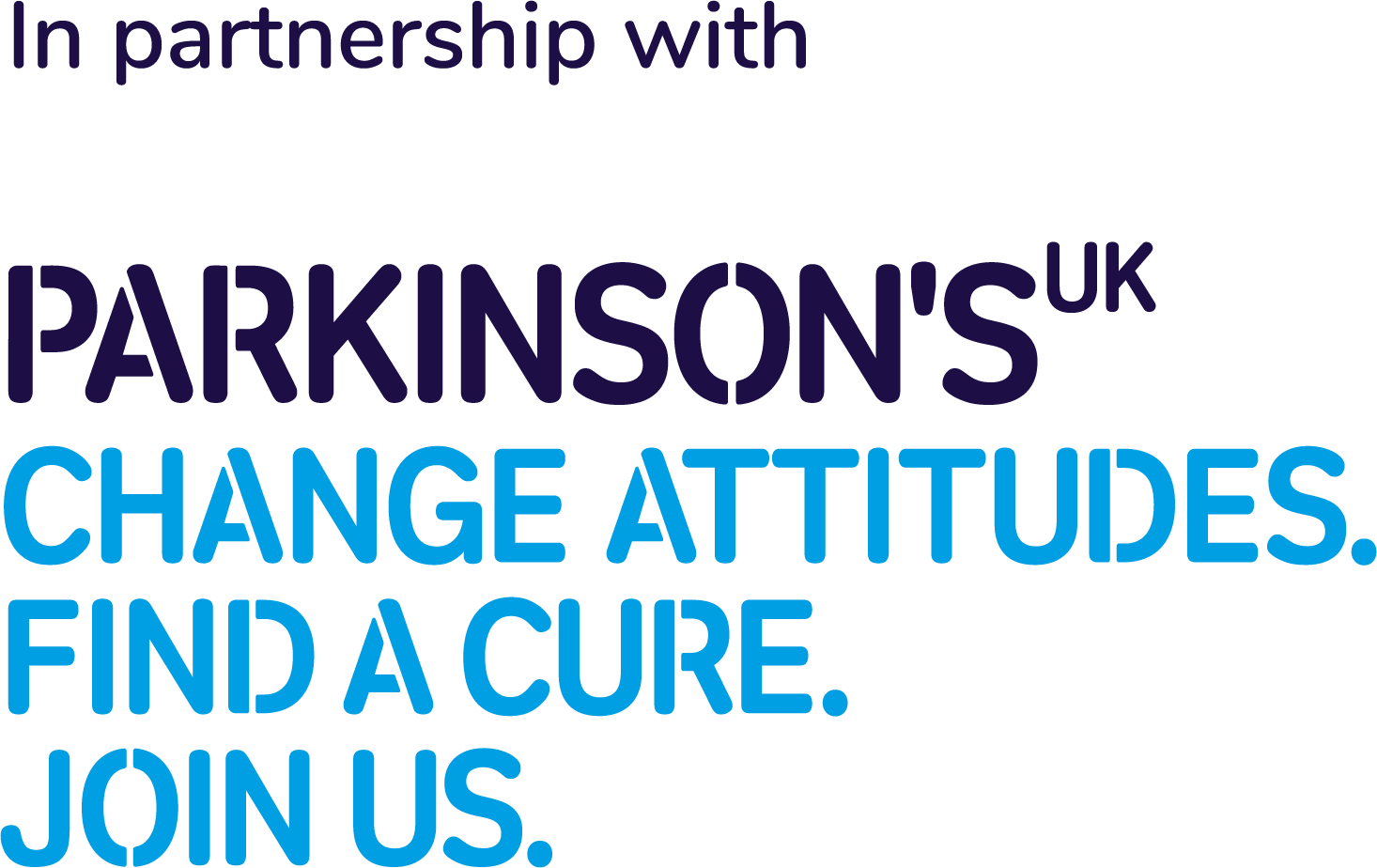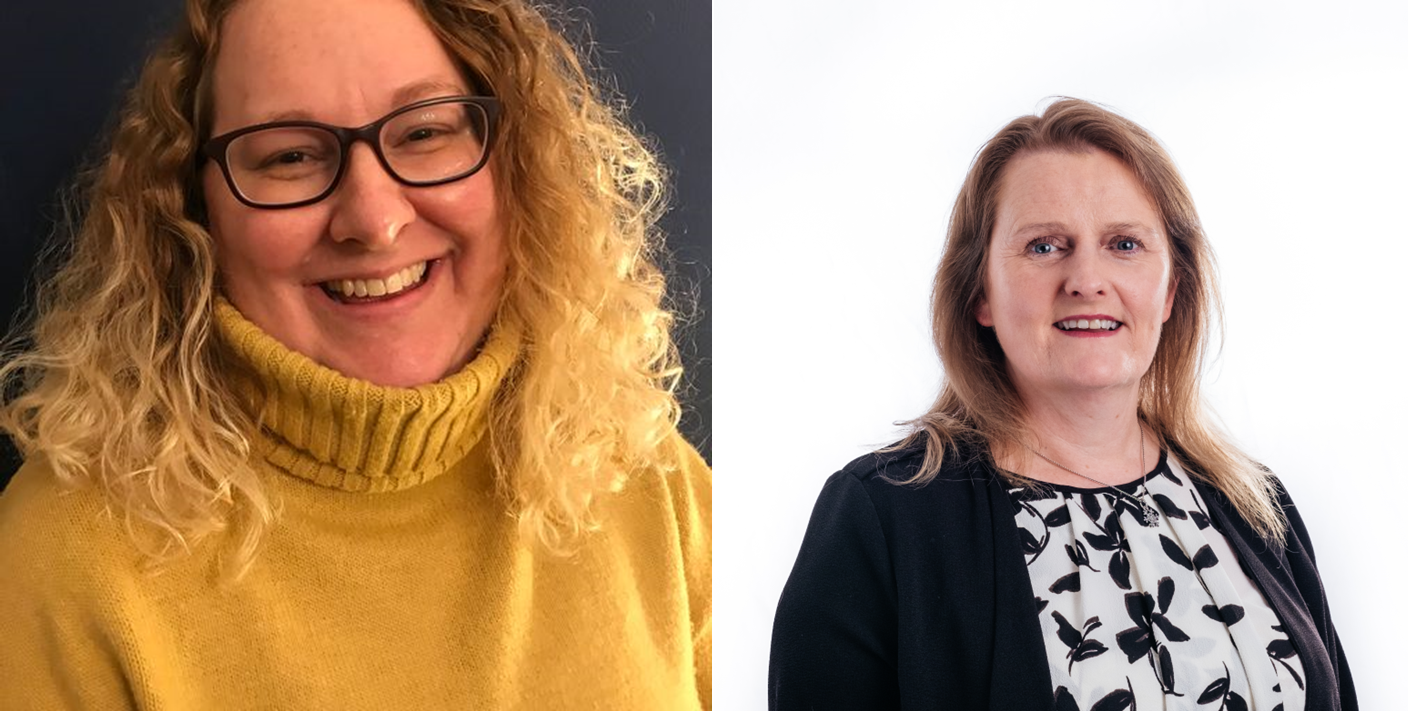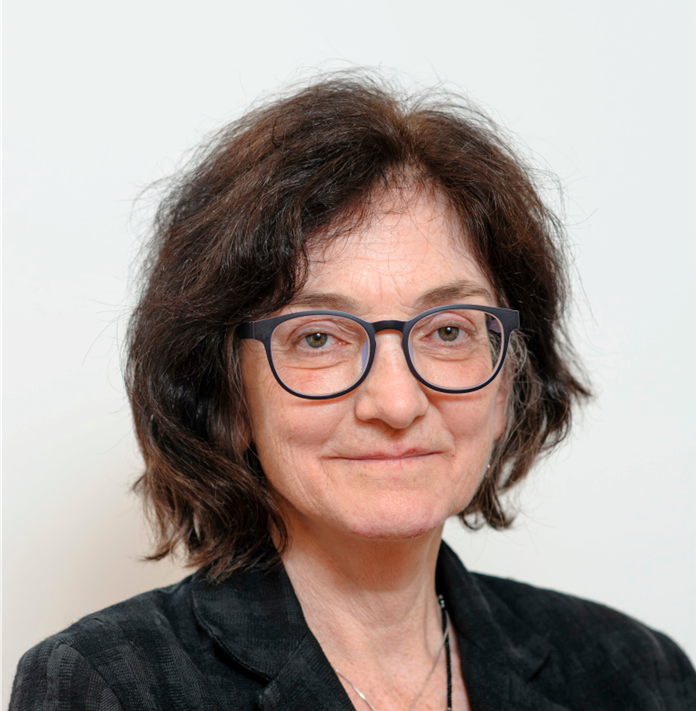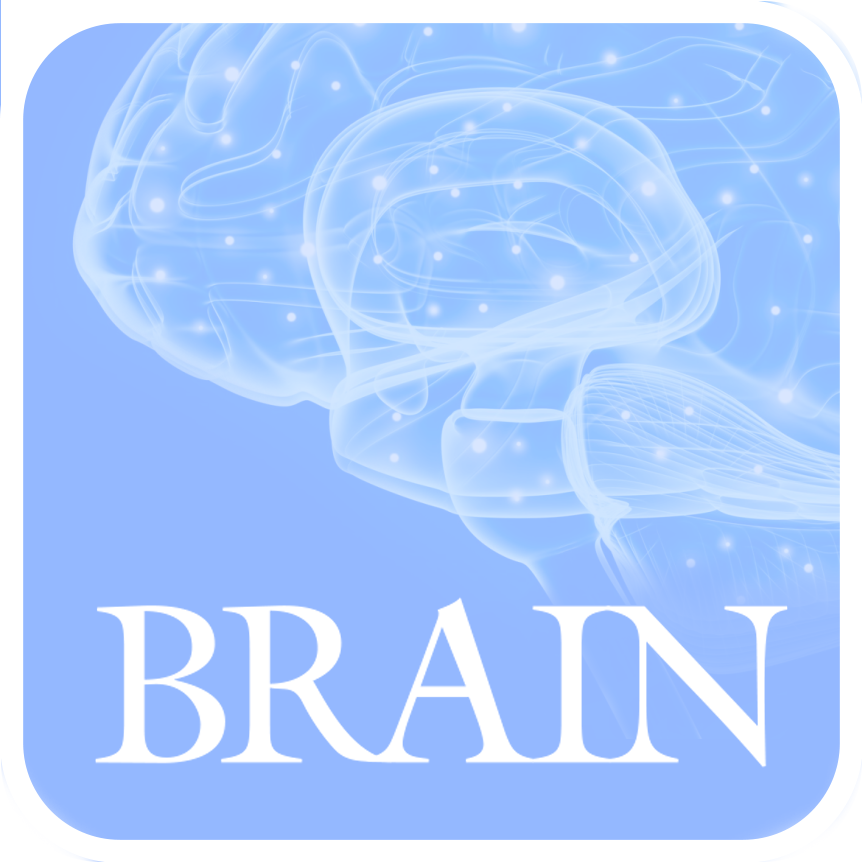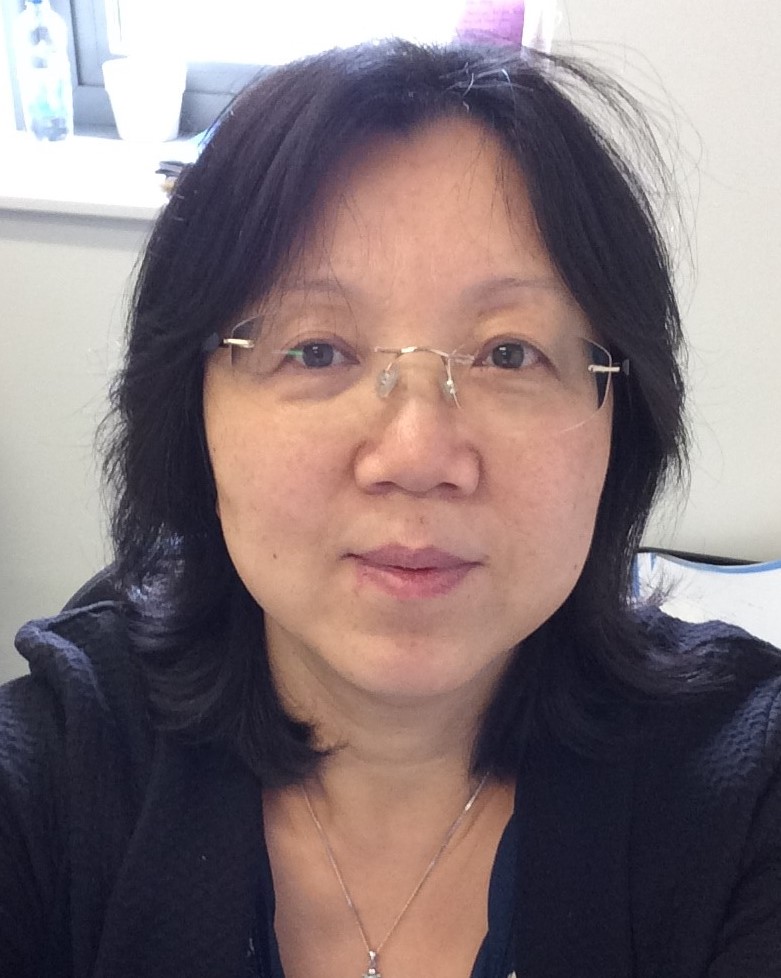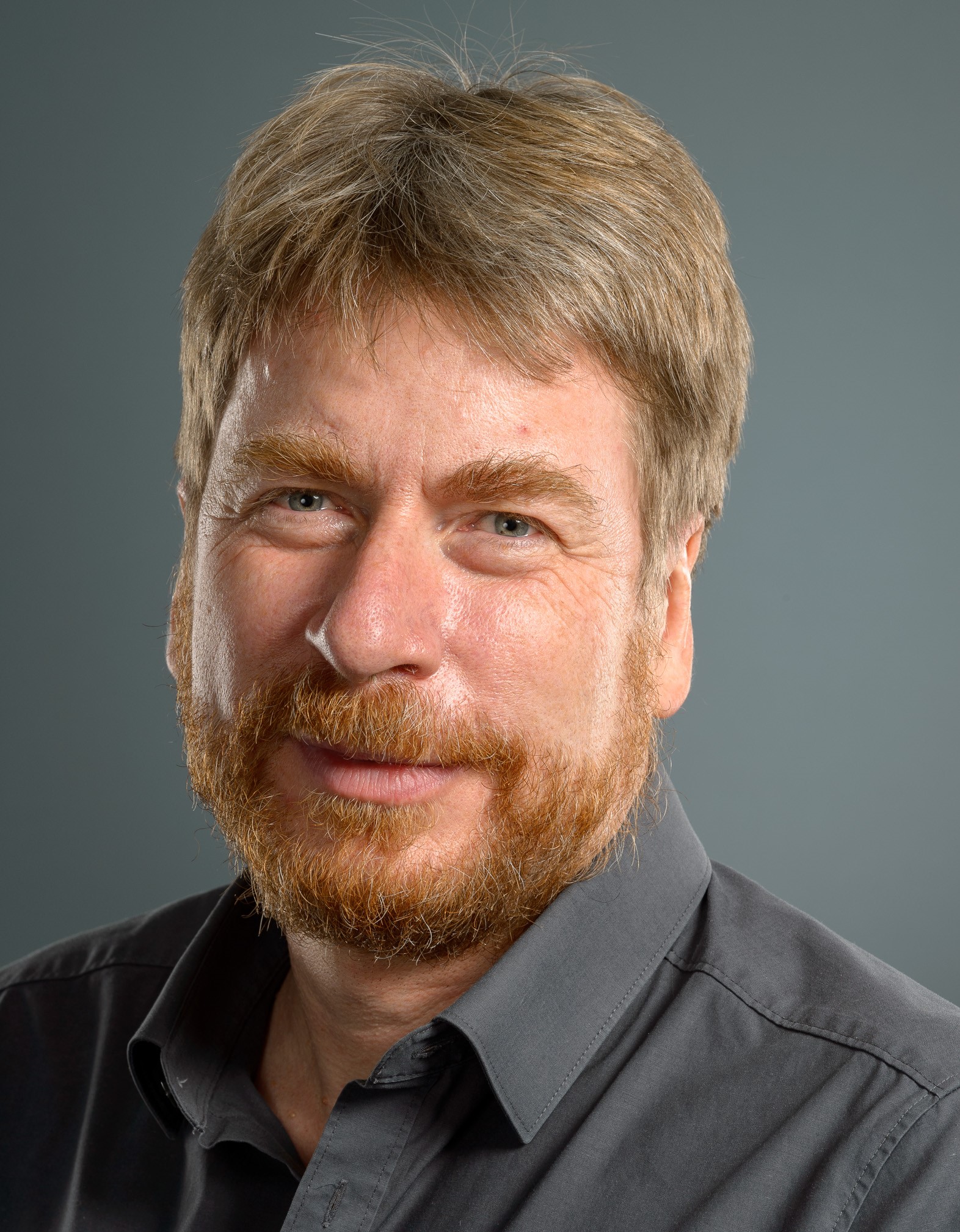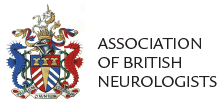Programme by day
Sunday 23rd April
Monday 24th April
Tuesday 25th April
Wednesday 26th April
Sunday 23rd April 2023
10:20 - 12:00 BST - Parallel sessions
Immunotherapy in neurodegenerative diseases (click for full information)
Convened by the British Neuropathological Society.
Topic: Ageing and dementia
James Nicoll, Southampton General Hospital, UK (co-chair): Pathology of immunotherapy in dementias
Chenxi Qiu, Harvard Medical School, USA (co-chair): Cis P-tau underlies vascular contribution to cognitive impairment and dementia and can be effectively targeted by immunotherapy in mice
Jean-Cosme Dodart, Vaxxinity, USA (co-chair): The UBITh platform in neurodegenerative diseases
Nivedita Agarwal, IRCCS Eugenio Medea, Italy: Amyloid related imaging abnormalities after immunotherapy
Brain models to expedite preclinical to clinical translation in neuro-oncology (Full information)
Session convened by the British Neuro-oncology Society.
Topic: Methods and technology development
Victoria Wykes, University of Birmingham, UK (co-chair): Development of patient-derived pre-clinical models of brain tumours
Manav Pathania, University of Cambridge, UK: A Compendium of Syngeneic, Transplantable Paediatric High-Grade Glioma Models Reveals Subtype-Specific Therapeutic Vulnerabilities
Harish Poptani, University of Liverpool, UK: Neuro-imaging and spectroscopic methods in preclinical models of brain tumours
Neil Carragher, University of Edinburgh, UK: High content phenotypic profiling across patient derived glioblastoma stem cell models
Current topics in Neuropsychiatry (click for full information)
Convened by the British Neuropsychiatry Association
Topic: Parkinson's disease and other
Wendy Phillips, Addenbrooke’s Hospital, Cambridge and Princess Alexandra Hospital, UK: Clinical presentation of synucleinopathies (co-chair)
Boyd Ghosh, University Hospital Southampton,UK: The clinical presentations of tauopathies (co-chair)
Thomas Pollak, King’s College London, UK: Autoimmune psychosis: towards improved diagnosis and treatment
Jeremy Isaacs, St George's University Hospitals NHS Foundation Trust, UK: New insights into functional cognitive disorder
SPECIAL SESSION: Rapid Fire poster talks
30 x 3-minute poster talks, selected from across all topics on offer at the Festival. Get a taste of all types of neuroscience in a single session!
Supported by Bio-techne, the BNA2023 careers sponsor.
Neuromodulation enhanced activity-based therapy for motor recovery following Spinal Cord Injury (click for full information):
Topic: Sensory and motor systems
Chloe Shin-Yi Chiou, University of Birmingham, UK (co-chair): Pairing movements across arms and the trunk for enhancing motor output of the trunk after spinal cord injury
Ronaldo Ichiyama, University of Leeds, UK: Neuromodulation of Spinal Circuits: Neurorehabiliation and Recovery of Function Following Severe SCI
Lynsey Duffell, the University College London (co-chair): First UK experience of epidural Spinal Cord Stimulation in a patient with motor complete spinal cord injury – motor recovery and multisystem gains
Joseph Steel, the London Spinal Cord Injury Unit at the Royal National Orthopaedic Hospital: Early application of neuromodulation to enhance recovery following Spinal Cord Injury - a clinical perspective
Mitochondrial dysfunction and therapeutic potential (Full information)
 Part of the Parkinson’s UK Programme Stream
Part of the Parkinson’s UK Programme Stream
Topic: Parkinson's disease and other neurodegenerative disorders
Niamh Connolly, Royal College of Surgeon Dublin, Ireland (co-chair): Mitochondrial bioenergetics, dynamics, morphology and stress response in neurons exposed to alpha-synuclein preformed fibrils
Olga Corti, Paris Brain Institute (Institut du Cerveau), Paris: Mitochondrial dysfunction in the alpha-synuclein preformed fibril mouse model of Parkinson’s disease
Miratul Muqit, MRC Protein phosphorylation and ubiquitylation unit, Dundee (co-chair): Decoding Mitochondrial Damage Response Pathways linked to Parkinson’s disease
Heather Mortiboys, SiTRaN at the University of Sheffield, UK: Targeting mitochondria for disease modification in Parkinson's Disease
|
12:00 - 13:00 BST |
Sunday 23rd April 13:00 – 14:40 BST - Parallel sessions
The truth about drugs: the neuroscience, evidence, and drug checking (Full information)
Session convened by Drug Science
Topic: Treatments and translational neuroscience
Hannah Thurgur, Drug Science, UK (co-chair): Feasibility study of medical cannabis for the treatment of Long COVID symptoms
David Nutt, Imperial College London, UK: Between Receptor and Mind: How Psychedelics Work in the Brain
Anne Schlag, Kings College London, UK (co-chair): Real World Evidence on the effectiveness of Cannabis-based medicinal products (CBMPs)
Fiona Measham, University of Liverpool, UK: Introducing the UK's first Home Office-licensed, local government-funded regular drug checking service
Circadian Neuroscience (Full information)
Topic: Circuit dynamics and oscillations
Rob Lucas, Universtiy of Manchester, UK (co-chair): The importance of daytime light for circadian health
Aarti Jagannath, University of Oxford, UK: The role of Salt-Inducible Kinases in regulating sleep and circadian rhythms
Marco Brancaccio, Imperial university, UK: Glial control of circadian rhythms in the suprachiasmatic nucleus
Lukasz Chrobok, University of Bristol, UK (co-chair): Ticking and talking in the brainstem: circadian timekeeping properties of the dorsal vagal complex
Synaptic neurodevelopmental disorders: genes, cells, circuits, cognition (Full information)
Topic: Synapses and plasticity
Kate Baker, MRC Cognition and Brain Sciences Unit, University of Cambridge (non-speaking co-chair)
Asma Soltani, Department of Physiology, Neuroscience and Development, University of Cambridge, UK (co-chair): Inhibitory interneurons and network development in MECP2 deficiency
Sarah Gordon, Florey Institute of Neuroscience and Mental Health, UK: Unravelling the pathogenicity of SYT1-associated neurodevelopmental disorder
Cezar Tigaret, Neuroscience & Mental Health Research Institute, Cardiff University, UK: CACNA1C, synaptic plasticity and contextual learning in psychiatric disorders
Susana Ribeiro dos Louros, University of Edinburgh, UK: Excessive proteostasis contributes to pathology in Fragile X Syndrome
Making sense of changing external and internal environments: New mechanistic insights from motivational and sensory systems (Full information)
Topic: Cognition and behaviour
Session supported by Sussex Neuroscience
Eisuke Koya, University of Sussex, UK: The modulation of cue-evoked food seeking: Prefrontal cortex ensemble mechanisms
Lauren Burgeno, The University of Oxford, UK: Tracking Striatal Cholinergic Activity During Flexible Decision Making
Leslie Ramsey, National Institute on Drug Abuse Intramural Research Program, USA: Characterizing prefrontal cortical neuronal ensembles that encode volitional social interaction
James McCutcheon, UiT The Arctic University of Norway, Norway: Exploring the neural and behavioural signatures of protein appetite
Glia in neurodegeneration: genetics, mechanisms and therapeutic targets (Full information)
Topic: Ageing and dementia
Peter St George-Hyslop, University of Cambridge, UK: Microglia mechanisms to counteract amyloid pathology
Julia TCW, Boston University School of Medicine, USA: Deciphering functional mechanisms of Alzheimer's disease (AD) genetic risk in iPSC models
Hazel Hall-Roberts, UK Dementia Research Institute at Cardiff, UK (co-chair): Modelling Alzheimer’s disease polygenic risk in iPSC-microglia-like cells
Emma Mead, Alzheimer's Research UK Oxford Drug Discovery Institute, UK (co-chair): Glial therapeutic targets for neurodegenerative disease
Biological mechanisms underlying neurodevelopmental and neuropsychiatric disorders: findings from hPSC models (Full information)
Topic: Neurodevelopment, stem cells, and associated disorders
Eunju Jenny Shin, Keele University, UK (co-chair): Understanding genetic risk factors for neuropsychiatric disorders in cortical interneuron development using human pluripotent stem cell differentiation
Deepak Srivastava, King's College London, UK: Translating genetic susceptibility to neurobiological understanding of schizophrenia – insights from ZNF804A, the original common variant.
In-Hyun Park, Yale University, USA: Generation of human diencephalic organoids to investigate the neurodevelopmental diseases
Rana Fetit, University of Edinburgh, UK (co-chair): The effects of 16p11.2 deletion on subpallial development in ventral telencephalic organoids
Patient and public involvement in research: Parkinson's and beyond (WORKSHOP) (Full information)
Topic: Other (e.g. History, teaching, outreach, etc)
Laura Jacobs, Parkinson's UK, London, UK
Ellen Poliakoff, The University of Manchester, UK
Carroll Siu, Parkinson's UK Volunteer, UK
Matthew Sullivan, Parkinson's UK Volunteer, UK
Heather Mortiboys, University of Sheffield, UK
|
14:40 - 16:20 BST - Exhibition and POSTER SESSION ONE (Sunday) |
Sunday 23rd April 16:20 – 18:00 BST - Parallel sessions
Neurological effects of COVID-19 (Full information)
Session convened by the: Guarantors of Brain
Topic: Other neurological disorders
Avindra Nath, NIH, Bethesda, USA (co-chair): Neurological disorders in COVID-19: potential mechanisms of disease
Michael Lunn, UCL, London, UK: Epidemiological and cohort study finds no association between COVID-19 and Guillain-Barré syndrome
Marcel Woo, University Medical Center, Hamburg-Eppendorf, Germany: Cognitive deficits after recovery from COVID-19
Sijia Zhao, University of Oxford, UK (co-chair): Rapid vigilance and episodic memory decrements in COVID-19 survivors
Stroke and neuroprotection: novel strategies (Full information)
Session convened by Neuroscience Ireland.
Topic: Other neurological disorders
Karen Doyle, National University of Ireland, Galway, Ireland (co-chair): Stroke as a systemic disease: understanding the clots that cause strokes
Christian Waeber, University College Cork, Ireland: The Role of Regulatory T Cells in Stroke Recovery
Malcolm MacLeod, University of Edinburgh, UK: Improving the translational impact of preclinical stroke research
Johanna Ospel, University of Basel, Switzerland (co-chair): Current state-of-the-art acute ischemic stroke treatment from a clinician's perspective
What do human hippocampal neurons code? (Full information)
Session convened by the British Association of Cognitive Neuroscience.
Topic: Cognition and behaviour
Luca Kolibius, University of Glasgow, UK (co-chair): Hippocampal neurons code individual episodic memories in humans
Rodrigo Quian Quiroga, University of Leicester, UK (co-chair): Concept neurons as the building blocks of declarative memory
Doris Dijksterhuis, Netherlands Institute for Neuroscience, Netherlands: Pronouns reactive concept cells in the human medial temporal lobe
Robert Mok, University of Cambridge, UK: How the hippocampus encodes concept and spatial representations: a multi-level account from behaviour to neurons
UK MND Research Institute: Translating into treatment for MND - is the time now? (Full information)
Session convened by MND Scotland, MND Association and My Name’5 Doddie Foundation.
Topic: Treatments and translational neuroscience
Ammar Al-Chalabi, King's College London, UK (co-chair): The challenges of motor neuron disease research and the opportunities ahead
Arpan Mehta, University of Edinburgh and UCL, UK (co-chair): MND-SMART - delivering innovation in clinical trials from bench to bedside
Pamela Shaw, University of Sheffield, UK: Translational pipeline of potential neuroprotective therapies and biomarkers
Alex Thompson, University of Oxford, UK: Identifying early ‘presymptomatic’ disease markers
Genetic, epigenetic and immune mechanisms for major psychiatric disorders
Topic: Psychiatry and mental health
Ed Bullmore, University of Cambridge (co-chair)
Andrew McIntosh, University of Edinburgh: Recent insights in depression from genetics and multi-omic studies
Marion Leboyer, INSERM: Immuno-genetics towards precision psychiatry
Mary-Ellen Lynall, University of Cambridge (co-chair): Innate and adaptive cellular immunology in psychiatry: insights from genetic association studies
Jonathan Mill, University of Exeter; Regulatory genomic pathways to neuropsychiatric illness
[SPECIAL SESSION] Mentoring Circle²: co-producing solutions in research culture and careers (Full information)
Session convened by the ALBA Network and the BNA Scholars Programme
A new collaboration between the ALBA Network and the BNA Scholars Programme, this special session invites you to join your choice of several ‘mentoring circles’ to co-develop solutions to the issues that affect us all in careers, research culture, and EDI in neuroscience. Groups will be guided by leading researchers and mentors from across neuroscience, and discussion topics will be based on real-life barriers identified by the BNA’s very own Scholars.
|
18:20 - 19:20 BST - Opening plenary - Plenary 1 |
|
19:20 - Opening reception |
Monday 24th April 2023
|
08:30 - 09:30 BST - Plenary 2
|
Monday 24th April 09:30 - 11:10 BST - Parallel sessions
HIV mental health: where are we headed? (Full information)
Topic: Psychiatry and mental health
Supported by the Collaborative Initiative for Paediatric HIV Education and Research by the IAS - the International AIDS Society
Arish Mudra Rakshasa-Loots, The University of Edinburgh, UK: Is it "all in your head"? The contribution of neuroinflammation to depression in a South African cohort of adolescents with and without HIV (co-chair)
Etheldreda Nakimuli-Mpungu, Makerere University, UK: Long-term effect of group support psychotherapy on depression and HIV treatment outcomes: Secondary analysis of a cluster randomized trial in Uganda
Kate Alford, Brighton & Sussex Medical School, UK: Quality of life in people living with HIV with cognitive impairment
Mercy Shibemba, PENTA Foundation, UK: 'Everything makes sense now!' The importance of sharing research with children and young people (co-chair)
Neurovascular contributions to dementia (Full information)
Session convened by The Physiological Society.
Topic: Ageing and dementia
Silvia Anderle, University of Sussex, UK (co-chair): APOE genotype and amyloid-β interactions in the emergence of AD pathology
Beth Eyre, University of Sheffield, UK (co-chair): Investigating the effects of atherosclerosis in an Alzheimer's disease model
Axel Montagne, UK Dementia Research Institute at the University of Edinburgh, UK: Loss of Endothelial-Pericyte Crosstalk: A Major Driving Force in Dementia Pathology
Edith Hamel, McGill University, Canada: Brain endothelial cell dysfunction, white matter alterations and cognitive deficits
Brain and muscle channelopathies: from bench to bedside. (Full information)
Topic: Treatments and translational neuroscience
Emma Matthews, St George's University of London, UK: Muscle channelopathies: unexpected clinical phenotypes and what they teach us about other paroxysmal neurological disorders
Andreas Brunklaus, Royal Hospital for Children, Glasgow and Glasgow University, UK: Gene variant effects across sodium channelopathies predict function and guide precision therapy
Stephanie Schorge, University College London, UK (co-chair): Harnessing mechanistic insights from channelopathies to develop gene therapies for non-genetic epilepsies
Karen Suetterlin, Newcastle University, UK (co-chair): Bridging the preclinical-clinical gap: reverse translation of muscle velocity recovery cycles allows in vivo assessment of skeletal muscle excitability in mice and humans
Refining the use of head fixation and food & water control in rodents (Full information)
Session convened by NC3Rs.
Topic: Methods and technology development
Chris Barkus, NC3Rs, UK (co-chair): NC3Rs working group on high-yield rodent behavioural experiments
Malamati Bitzidou, The Francis Crick Institute, UK (co-chair): The head fixation surgery and procedure
Adil Khan, King's College London, UK: Food restriction for optimizing high-yield behavioural assay
Emma Robinson, University of Bristol, UK: Habituation methods to improve scientific outcomes and benefit animal welfare
SPECIAL SESSION - How can we make neuroscience more environmentally sustainable? (Full information)
Chaired by Charlotte Rae, University of Sussex
Find out how we can address the climate and ecological impacts of neuroscience research, from big data to laboratory efficiency, travel and institutional policies to advocacy and campaigning.
Dissecting the signaling pathways in Parkinson's and their therapeutic potential (Full information)
 Part of the Parkinson’s UK Programme Stream
Part of the Parkinson’s UK Programme Stream
Topic: Parkinson's disease and other neurodegenerative disorders
Claudia Manzoni, UCL School of Pharmacy, UK: Modelling the function of LRRK2 as controller of multiple pathways - a systems biology perspective
Dario Alessi, University of Dundee, UK: Pharmacological strategies targeting LRRK2
Matthew Gegg, University College London, UK (co-chair): The effect of glucocerebrosidase deficiency on the endolysosomal pathway and identification of potential pharmacological treatments
Michela Deleidi, German Centre for Neurodegenerative Diseases (DZNE), Germany: Dissecting GBA1 Parkinson' s disease: from 2D to 3D iPSC models
|
11:10 - 11:50 BST |
|
12:50 - 13:50 BST |
|
13:50 - 15:30 BST - Exhibition and POSTER SESSION TWO (Monday) |
Monday 24th April 15:30 - 17:10 BST - Parallel sessions
WORKSHOP: Building Bridges Between: Impactful hypotheses in translational psychiatric neuroscience: a critical appraisal (full information)
Co-hosted by the BNA and The Psychiatry Consortium
Supported by Discovery Park Neuroscience Hub
Alan Palmer, Elixa MediScience, UK: (co-chair)
Ekta Patel, The Psychiatry Consortium, UK: (co-chair)
Robin Murray, King's College London, UK: The dopamine hypothesis of schizophrenia
Rachel Gurrell, Noema Pharma, UK: The GABAA receptor hypothesis of anxiety
Phil Cowen, Oxford University, UK: The serotonin hypothesis of depression
David Nutt Drug Science, UK:
Advances in fundamental and clinical neurosciences (Full information)
Session convened by the Guarantors of Brain.
Topic: Treatments and translational neuroscience
Britta Eickholt, Charite, Berlin, Germany (co-chair): Cell signalling and its implications for brain disorders
Sam Olum, Gulu University, Uganda: Clinical features of nodding syndrome
Charlie Arber, University College London, UK (co-chair): Induced pluripotent stem cell models of Alzheimer’s disease
Sarosh Irani, Oxford, UK: Insights into how autoantibodies are made and cause disease in the CNS
Short ride in a fast sense: Hearing from hair cells to cortex. (Full information)
Topic: Sensory and motor systems
Session supported by Sussex Neuroscience
Corné Kros, University of Sussex, UK: Mechano-electrical transducer channel pore properties vary with frequency position along the cochlea (co-chair)
Snezana Levic, Brighton and Sussex Medical School, UK: The role of the calcium-sensing receptor in regulating intracellular calcium dynamics in the mammalian cochlea (co-chair)
Victoria Ciampani, University of Leicester, UK: Kv3 channel modulation of action potentials at high frequencies in the auditory brainstem
Andrew King, Oxford University, UK: Why do we need an auditory cortex?
Developments in translational biology (Full information)
Session convened by Alzheimer’s Research UK.
Topic: Treatments and translational neuroscience
David Rubinsztein, UK Dementia Research Institute at the University of Cambridge, UK: Autophagy, a guardian against neurodegeneration
Giedre Cepukaityte, University College London, UK: Early detection of neurodegenerative diseases using digital technologies (co-chair)
Stefano Benvegnu, Drug Discovery Institute, London, UK: Notum Inhibition as a Potential Therapeutic Approach for Alzheimer's Disease
Inma Rioja, Bicycle Therapeutics, UK: Bicyclic peptides (Bicycles) as novel multipurpose delivery systems
WORKSHOP: Neuroscience education and teaching
Session convened by the Joint Neurosciences Council
Nick Kane, Joint Neurosciences Council, UK: (co-chair)
Linford Fernandes, Leeds Teaching Hospitals, UK: (co-chair)
Simon Thomson, Ebrain UK: Introduction to workshop
Joanne Pugh and Danielle Green: Behind the scenes of building an eLearning neuroscience website
Geraint Fuller, Gloucestershire Hospitals NHS Trust, UK: Teaching and Learning Clinical Neurology: Incorporating neuroscience
Phil Smith, Cardiff, UK: Assessing neuroscientists and neurologists using single best answer questions
Amit Batla, University College London, UK: Shaping Ebrain: Applying principles to practice
Are peripheral and CNS inflammation drivers of neurodegeneration (Full information)
 Part of the Parkinson’s UK Programme Stream
Part of the Parkinson’s UK Programme Stream
Topic: Parkinson's disease and other neurodegenerative disorders
Deborah Kronenberg- Versteeg, University of Tubingen, Germany: New models to investigate the role of microglia in Parkinson’s disease
Ian Harrison, University College London, UK (co-chair): Exploring the therapeutic potential of the glymphatic system in the clearance of pathological alpha-synuclein from the brain
Soyon Hong, UK Dementia Research Institute at University College London, UK: Neuroimmune mechanisms along the gut-brain axis in synucleinopathy models
Caroline Williams-Gray, Cambridge University, UK (co-chair): The peripheral immune system: a new therapeutic target in Parkinson's disease
|
|
|
Part of the Bring Your Own Brain - Brighton public programme |
Tuesday 25th April 2023
|
08:30 - 09:30 BST - The Wolstencroft Lecture - Plenary 5
|
Tuesday 25th April 09:30 - 11:10 BST - Parallel sessions
WORKSHOP - Making your science communication go further: a workshop from the editors of Inspire the Mind (Full information)
Topic: Other (e.g. History, teaching, outreach, etc)
Lea Schmid, King's College London, UK: So, you want to be famous? How to engage media in science communication
Riddhi Laijawala, King's College London, UK: The secrets of writing an impactful and informative science blog for a lay audience
Carolina Estevao, King's College London, UK: Bringing a fresh voice to science podcasting: the experience of “At the back of your mind”
Clare Liedstrand, University of Westminister, UK: Combatting science denial: How to communicate science in a climate of misinformation
Amina Begum, University of Westminster, UK: The structure of a blog: a practical exercise
Ally Jaffee, NHS, UK: Being a Mental Health Content Creator
Gargi Mandal, King's College London, UK: Writing about science for different audiences: a practical exercise
Supercharge your brain research workflow: whole organ to single cells (Full information)
Session convened by Miltenyi Biotec
Topic: Methods and technology development
Jill Fowler, Centre for Discovery Brain Sciences, University of Edinburgh, UK: Investigating global disease-associated glial cell changes in the chronic response to focal cerebral ischaemia with single cell sequencing
Iben Lundgaard, Lund University, Sweden: Shedding light on brain clearance
Kirsty Craigie, Simons Initiative for the Developing Brain, University of Edinburgh, UK: Tissue clearing and light-sheet microscopy to map brain-wide neuronal activation in 3D
Csaba Adori, Karolinska Institutet, Sweden: Spatiotemporal characterization of cellular tau pathology in the human locus coeruleus-pericoerulear complex by three-dimensional imaging
Innovations in research from Epilepsy Research UK (Full information)
Session convened by Epilepsy Research UK.
Topic: Other neurological disorders
Anna Norton, Epilepsy Research UK: The Top 10 Epilepsy Research Priorities: A UK Priority Setting Partnership
Marie Pronot, University of Edinburgh, UK: Pathophysiological consequences of middle domain DNM1 mutations
Faye McLeod, Newcastle University, UK: Modelling monogenic epilepsy in human brain slice cultures (co-chair)
Gareth Morris, University College London, UK: MicroRNA-based therapies for epilepsy (co-chair)
Aversive cognition and pain: from theory to neuroengineering. (Full information)
Topic: Cognition and behaviour
Deborah Talmi, University of Cambridge, UK: non-speaking co-chair
Dounia Mulders, Universite' Catholique de Louvain, Belgium: Inference and control of aversive states in the human brain
Ariane Delgado-Sanchez, University of Manchester, UK: Pain phenotyping using Bayesian modelling (co-chair)
Christopher Brown, University of Liverpool, UK: Joint modelling of priming, perceptual and aversive learning within a Bayesian framework
Ben Seymour, University of Oxford, UK: Neuroengineering for chronic pain
Malformations of the central nervous system in Ciliopathies. (Full information)
Topic: Neurodevelopmental, stem cells and associated disorders
Sylvie Schneider Maunoury, Institut de Biologie Paris Seine (IBPS) , Sorbonne University, France: An organoid approach of neurodevelopmental defects in neural ciliopathies
Vasanta Subramanian, University of Bath, UK: Role of the basal body protein Talpid3 in Brain Development-implications for Joubert syndrome (co-chair)
Raman Das, Faculty of Life Sciences, University of Manchester, UK: Dynamic modulation of the cell signalling response by primary cilium remodelling during vertebrate neuronal differentiation (co-chair)
Colin Johnson, Faculty of Biological Sciences, University of Leeds, UK: Neurodevelopmental defects in severe ciliopathies: insights from gene discovery and functional genomics
Understanding neurodegeneration through single cell- and organoid-based approaches (Full information)
Session convened by CURE-ND.
Topic: Parkinson's disease and other neurodegenerative disorders
Giles Hardingham, UK Dementia Research Institute at The University of Edinburgh, UK: Glia-neuronal interactions in Alzheimer's disease (co-chair)
Wei-Ting Chen, VIB - KU Leuven Center for Brain and Disease Research, Belgium: Exploiting spatial transcriptomics to understand Alzheimer's disease (co-chair)
Benjamin Galet, Paris Brain Institute, France: Lineage-specific molecular profiling in organoid models of Alzheimer's Disease
Michela Deleidi, German Centre for Neurodegenerative Diseases (DZNE), Germany: Glucocerebrosidase and Brain Disease: Novel Functions Beyond the Lysosome
|
12:50 - 13:50 BST - Exhibition |
|
13:50 - 15:30 BST - Exhibition and POSTER SESSION THREE (Tuesday) |
Tuesday 25th April 15:30 - 17:10 BST - Parallel sessions
WORKSHOP - Obtaining and using living human brain tissue for translational research - hype, hope or hassle? (Full information)
Session convened by the Society of British Neurological Surgeons.
Topic: Methods and technology development
William (Liam) Gray, Cardiff University and University Hospital Wales, UK: Workshop Overview AND Using Primary Adult Human Brain tissue to study Neuroinflammatory and neurodegenerative diseases (co-chair)
Ryan Mathew, University of Leeds & Leeds Teaching Hospitals NHS Trust, UK: Living Human Brain Tissue in Neuro-Oncology Research (co-chair)
Cheney Drew, Cardiff University Finance, UK: Ensuring governance, quality and equity of access to researchers - a personal experience (co-chair)
Sam Booker, Edinburgh University, UK: Knowing your tissue - the importance and value of phenotyping (co-chair)
Siebzehnrubl Florian, Cardiff University, UK: Why I bother collaborating with academic neurosurgeons (co-chair)
Glial function in CNS disorders: are astrocytes the real stars? (Full information)
Topic: Other neurological disorders
Veronique Miron, UK Dementia Research Institute at the University of Edinburgh, UK: Astrocyte-oligodendrocyte interaction regulates central nervous system remyelination
Matthew Broadhead, University of St Andrews, UK: Selective Vulnerability of Tripartite Synapses in Amyotrophic Lateral Sclerosis (co-chair)
Disha Shah, Katholieke Universiteit Leuven, Belgium: Astrocytic calcium dysfunction at the early stages of Alzheimer's Disease
Trevor Bushell, University of Strathclyde, UK: Astrocytes and major depressive disorder: a target for novel treatments? (co-chair)
Novel strategies to improve drug delivery to the CNS, for treatment of psychiatric and neurodegenerative diseases (Full information)
Session convened by the British Association for Psychopharmacology.
Topic: Treatments and translational neuroscience
Khuloud Al-Jamal, King's College London, UK: Quantitative and qualitative analyses of gold nanorods distribution in the brain following nose to brain administration
Omar Mokrane, University College London, UK: Delivery of CRISPR-Cas9 to the Brain for the Treatment of CNS Disease (co-chair)
Maddy King, University of Nottingham, UK: Use of a novel cell-penetrating peptide to facilitate nose-brain delivery of oxytocin for treatment of psychiatric illness (co-chair)
David Dickens, University of Liverpool, UK: Strategies to boost the brain delivery of a NMDA receptor antagonist by targeting drug transporters at the blood-brain barrier
Behavioural insights into the nature of spatial memory (Full information)
Session convened by European Brain and Behaviour Society.
Topic: Cognition and behaviour
Alexander Easton, Durham University, UK: non-speaking co-chair
Dorothy Tse, Edge Hill University, UK: non-speaking co-chair
Steven Poulter, Durham University, UK: Remembering where things are: Vector Trace cells, Theta Oscillations and Virtual Reality
Eleonore Duvelle, Dartmouth University, USA: Hippocampal place cell firing during flexible spatial navigation
Lisa Genzel, Radboud University, Netherlands: The HexMaze: testing previous knowledge effects in map learning
Jan Wiener, Bournemouth University, UK: Route sequence knowledge aids the formation of cognitive graphs
WORKSHOP - The future of publishing in translational neuroscience (Full information)
Session convened by the Guarantors of Brain.
Topic: Other (e.g. History, teaching, outreach, etc)
Phil Bishop, OUP, UK: Open Access publishing and where we are with Plan S
Masud Husain, University of Oxford, UK: The view from the Editor’s desk: Publishing in Brain
Jeff Dalley, University of Cambridge, UK: Publishing in Brain and Neuroscience Advances and registered reports
Manuela Marescotti, University of Edinburgh, UK: The lack of gender bias in editorial processes at Brain Communications
Techniques/Technologies driving a better understanding of disease mechanisms (Full information)
 Part of the Parkinson’s UK Programme Stream
Part of the Parkinson’s UK Programme Stream
Topic: Parkinson's disease and other neurodegenerative disorders
Caleb Webber, UK Dementia Research Institute at Cardiff University, UK: Exploiting stem cell model heterogeneity with single cell RNAseq (co-chair)
Tiago Outeiro, Newcastle University, UK: Extracellular vesicles: from basic biology to biomarkers
Amanda Lewis, École polytechnique fédérale de Lausanne, Switzerland: Insights into alpha-Synuclein accumulation in human brain using correlative light and electron microscopy
Nora Bengoa-Vergniory, Achucarro Basque Center for Neuroscience, Spain: Visualizing and tackling alpha-synuclein aggregation in Parkinson’s disease therapeutics (co-chair)
|
17:10 - 18:10 BST - Plenary 7
|
|
18:30 - 19:30 BST - Public lecture Part of the Bring Your Own Brain - Brighton public programme |
Wednesday 26th April 2023
|
08:30 - 09:30 - The Association of British Neurologists Plenary Lecture - Plenary 8 Focal epilepsy: from mechanisms to rational gene therapy
|
Wednesday 26th April 09:30 - 11:10 BST - Parallel sessions
Live imaging in the CNS: new insights on oligodendrocyte form, function and plasticity. (Full information)
Topic: Neurons and glia: intrinsic properties, cell biology and cell types
Daniel Fulton, University of Birmingham, UK (co-chair): Live-imaging of oligodendrocyte myelination and plasticity in forebrain slice cultures
Cody Call, Oregon Health and Science University, USA (co-chair): Paranodal bridges link chains of myelin sheaths that are vulnerable to age-related degeneration
Julia Edgar, University of Glasgow, UK: Live imaging cargoes in myelin’s highway to the axon
Jenea Bin, University of Edinburgh, UK: Live-imaging Myelinated Axon Development in Zebrafish
Recent advances at the interface of biological intelligence and deep neural networks. (Full information)
Topic: Computational and theoretical neuroscience
Srikanth Ramaswamy, Newcastle University, UK (co-chair): Multi-scale principles of neuromodulatory systems in neural networks: now and beyond
Maija Filipovica, University of Bristol, UK (co-chair): AI-driven Cholinergic theory of learning and cognitive robustness
Randy Bruno, University of Oxford, UK: Cortical Layers in Context and Learning
Sylvia Schroeder, University of Sussex, UK: How adaptable are the first stages of visual processing?
Ion channelopathies in neurodevelopmental disorders (Full information)
Session convened by Société des Neurosciences /British Neuroscience Association.
Topic: Other neurological disorders
Shehrazade Dahimene, University College London, UK: How a point mutation in CACNA2D1, encoding the calcium channel auxiliary subunit α2δ-1, contributes to early-onset developmental epileptic encephalopathy
Philippe Lory, Institut de Génomique Fonctionnelle, France: Gain-of-Function mutations in calcium channel genes are an emerging cause of severe neurodevelopmental disorders
Florence Riccardi, Centre de Génétique Médicale de Marseille, France (co-chair): RNA interference-based therapeutic development for KCNQ2-related epileptic and developmental encephalopathies
Andrew Penn, University of Sussex, UK: Synaptic dysfunction associated with mutations in GRIN2B: Influence of subunit composition and mutant classification
Synaptopathy in ALS/FTD. (Full information)
Topic: Parkinson's disease and other neurodegenerative disorders
Chris Henstridge, University of Dundee, UK (co-chair): Synaptic proteomics reveal molecular signatures of cognitive decline and C9ORF72 in human ALS
Matthew Livesey, University of Sheffield, UK: Understanding neurophysiological dysfunction in ALS-FTD
Sara Tacconelli, King's College London, UK (co-chair): Identifying synaptic interactors of FUS
Chantelle Sephton, Université Laval, Canada: Understanding early pathological changes in neuromorphology and synapses in ALS/FTD
Novel imaging technologies, optical clearing for large organs and data analysis tools. (Full information)
Topic: Methods and technology development
Cristina Martinez-Gonzalez, University of Edinburgh, UK (co-chair): Whole-brain light sheet imaging of behaviourally-activated neurons in the rat
Steven J. West, The Sainsbury Wellcome Centre for Neural Circuits and Behaviour, UK (co-chair): Automated annotation of histology data with registration to tissue atlases
Alain Chedotal, Institut de la Vision, Inserm, France: 3D imaging of the developing human nervous system with tissue clearing and light sheet microscopy
Gail McConnell, University of Strathclyde, UK: Optical mesoscopy with the Mesolens
SPECIAL SESSION - Desert Island Discs Papers
Join the Editors-in-Chief of Brain and Neuroscience Advances (Jeff Dalley and Kate Baker), together with castaways Mike Ashby (University of Bristol), Sarah-Jayne Blakemore and Professor Tara Spires-Jones (UK DRI at the University of Edinburgh AND brand new BNA President) for a relaxed and inspiring session to cap-off your BNA Festival 2023 experience.
|
11:10 - 11:40 BST - Break and refreshments |
|
11:40 - 13:00 BST - Closing session, including presentation of poster prizes and closing words - Plenary 9
|


